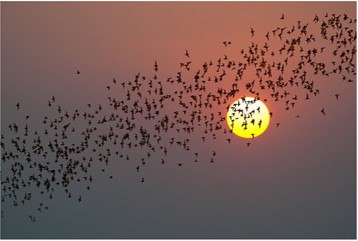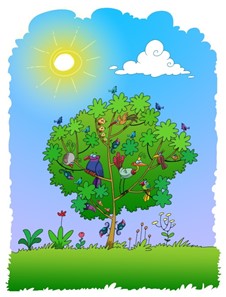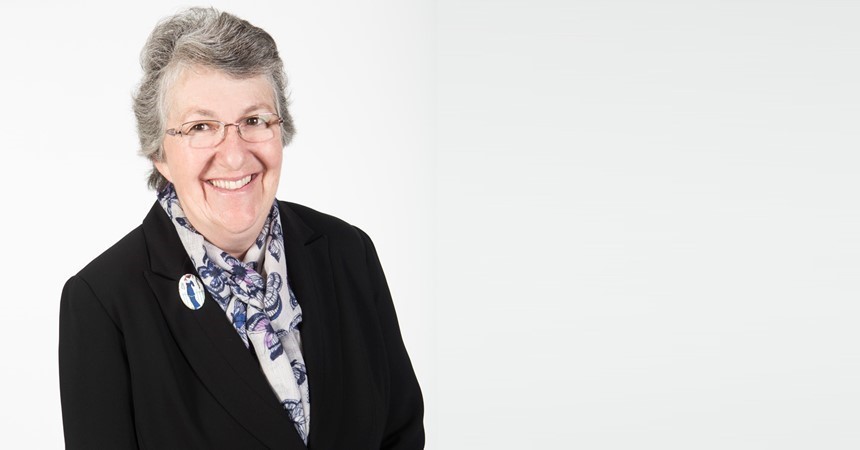Both responded to God’s call to them at their baptisms to love God, to love neighbour and be the Good News to the world in which they found themselves. Interestingly, both chose the reading on love from the First Letter of St Paul to the Corinthians (13: 1-13), from which I share just a short section, which captures the essence of these two beautiful men:

If I speak in the tongues of men and of angels, but have not love, I am a noisy gong or a clanging cymbal. And if I have prophetic powers, and understand all mysteries and all knowledge, and if I have all faith, so as to remove mountains, but have not love, I am nothing. If I give away all I have, and if I deliver my body to be burned, but have not love, I gain nothing.
Love is patient and kind; love is not jealous or boastful; it is not arrogant or rude. Love does not insist on its own way; it is not irritable or resentful; it does not rejoice at wrong, but rejoices in the right. Love bears all things, believes all things, hopes all things, endures all things.
Love never ends……So faith, hope, love abide, these three; but the greatest of these is love.
 The reflections on their lives were most powerful, and spoke of their capacity to love deeply, and for those who connected with them to feel the abiding love of God through them. Through the week, I was reading about grace and vocation, and I could not help but think of both Paul and John. Paul was called to serve as an ordained priest while John was called to serve as a doctor. Both men ministered from their sense of being called by God to serve people and to invite others to grow with them. I recently read that the Catholic Tradition teaches that grace builds on nature. Grace gives us new minds, hearts and eyes. Both Paul and John provided space for grace to grow within them. J. Michael Stebbins writes:
The reflections on their lives were most powerful, and spoke of their capacity to love deeply, and for those who connected with them to feel the abiding love of God through them. Through the week, I was reading about grace and vocation, and I could not help but think of both Paul and John. Paul was called to serve as an ordained priest while John was called to serve as a doctor. Both men ministered from their sense of being called by God to serve people and to invite others to grow with them. I recently read that the Catholic Tradition teaches that grace builds on nature. Grace gives us new minds, hearts and eyes. Both Paul and John provided space for grace to grow within them. J. Michael Stebbins writes:
Grace makes it easier for us to follow the lead of the desire to know, to raise questions and to persevere in attempting to answer them, and to identify the personal habits of thought, feeling and action that tend to hinder our pursuit of successful understanding.
God is continually calling us to participate in the missions of the Son and the Spirit. That is the primary sense of the world “vocation.” Hearing God’s call is not usually a matter of having a new kind of experience, but rather of having a new kind of insight into the experiences one has been having all along, an insight that reveals the deeper meaning of those experiences. For any of us to discern our vocation in this sense means discovering that God has already been calling us, and that we have already been responding, for better or worse. ……..God has already been using us as his instrument. (Leadership, Discernment and Elusiveness of Understanding)
I know that both men were men of deep prayer, meditation and contemplation. They both nurtured their loved ones through the torrid time of their illnesses while also allowing others to care for them. In his homily at Fr Paul’s funeral, Fr Kevin Corrigan quoted from the words of St Therese of Lisieux; “I no longer have any great desires except for that of loving”, which was Fr Paul’s motto. Fr Kevin went on to quote from St Bernard of Clairvaux’s Meditation on Love:
Love is its own payment,
Love is its own reward,
Love is the result of love.
I love because I love,
I live in order to love.
Love returns to its beginning and flows back to its source.
I have no doubt that Paul and John have returned to the source of all love. I feel very honoured to have known and encountered the spirit of God through both men. I am the richer for this, and so are those people and communities in which they served. The memory of them will live on in their families, their communities and in each of us.
 Our weekend readings on the Kingdom of God can leave us in no doubt about the abundant graces God bestows on us. In watching the third episode of David Attenborough’s, A Perfect Planet, there is a scene where ten million fruit bats arrive in Zambia from around the globe, at a particular time of the year, to feast on a certain fruit. The scene was totally mind-blowing. It reminded me of this part of the Gospel reading:
Our weekend readings on the Kingdom of God can leave us in no doubt about the abundant graces God bestows on us. In watching the third episode of David Attenborough’s, A Perfect Planet, there is a scene where ten million fruit bats arrive in Zambia from around the globe, at a particular time of the year, to feast on a certain fruit. The scene was totally mind-blowing. It reminded me of this part of the Gospel reading:
He also said, ‘What can we say the kingdom of God is like? What parable can we find for it? It is like a mustard seed which at the time of its sowing in the soil is the smallest of all the seeds on earth; yet once it is sown it grows into the biggest shrub of them all and puts out big branches so that the birds of the air can shelter in its shade.’ (Mark 4:26-34)
 As we know, trees take time to grow and mature, and I can’t help but think that our church is like this parable. We/it continues to grow, to be pruned, to bear fruit, to be nourished and to nourish, to give comfort and to be open to further growth.
As we know, trees take time to grow and mature, and I can’t help but think that our church is like this parable. We/it continues to grow, to be pruned, to bear fruit, to be nourished and to nourish, to give comfort and to be open to further growth.
The synod process is our attempt to journey as pilgrim people, and to Build the Kingdom of God Together. Both Paul O’Neill and John Cavenagh apologised for not being able to be with us at our second session of Synod. They were missed, and yet John took time to send in a submission in the weeks leading up to the Synod. It was around the importance and significance of providing people of our diocese with spiritual direction opportunities. I am sure this will be part of his legacy to us.
Eternal rest grant unto them O Lord and let perpetual light shine upon them. May they rest in peace, may they rest in peace. Amen.

